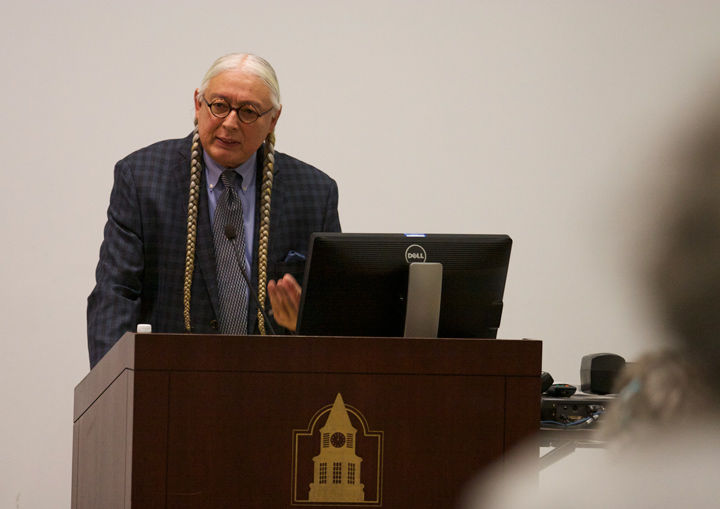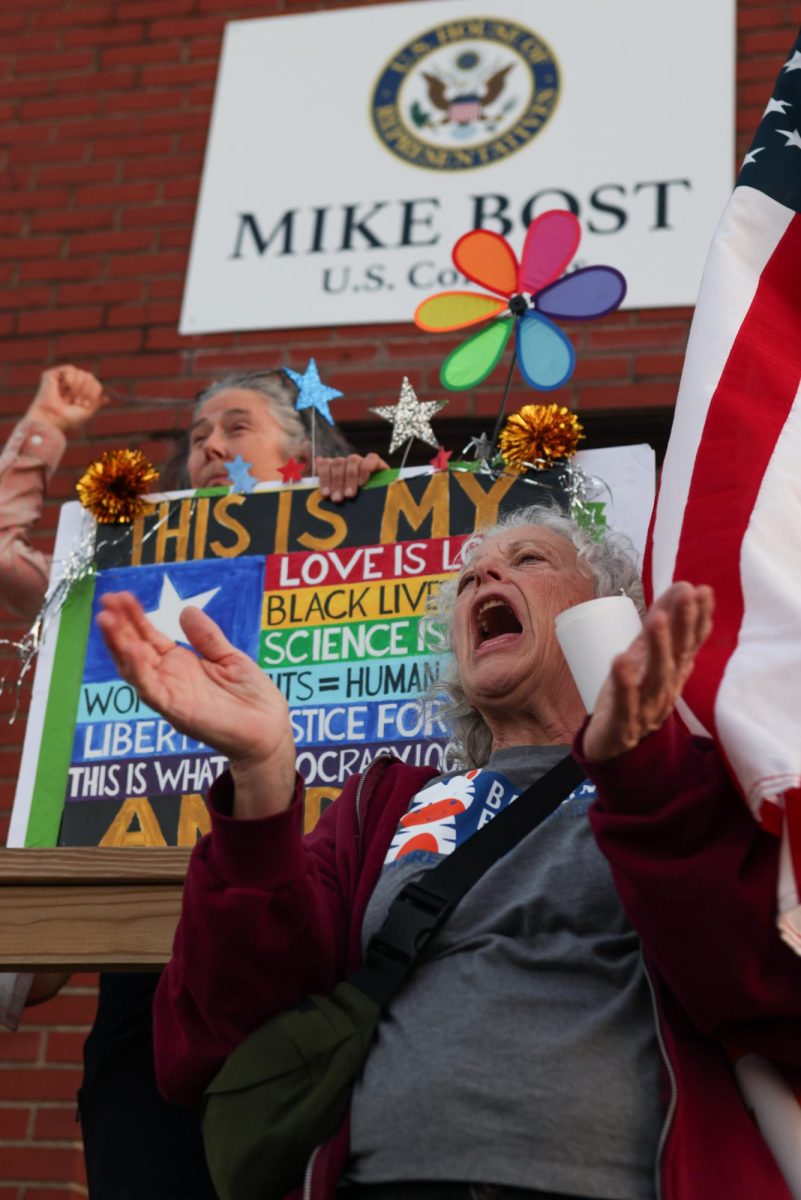Activist discusses Native American social issues to honor heritage month
November 16, 2015
A prominent Native American activist visited SIUC in recognition of Native American Heritage Month to encourage students and staff to join in the fight for human rights.
Keynote speaker Walter Echo-Hawk of the Pawnee Nation of Oklahoma talked Monday night at Guyon Auditorium about contemporary issues and Native American history related to social justice.
Echo-Hawk, an author, law professor, attorney and Supreme Court Justice of the Pawnee Nation, has dedicated his life to representing and protecting the rights and culture of Native American tribes.
Advertisement
“Most Americans think that Indians vanished, that our peoples became extinct. Others know very little about the native tribes in our homeland and others are held hostage to racial stereotypes of the native peoples that have been propagated by [the media],” Echo-Hawk said.
He stressed that despite popular belief, Native Americans have not disappeared from America today.
There are about 3 million Native Americans in the country as of 2015, according to Echo-Hawk. This number includes Native Hawaiians, Alaska Natives and Native Americans.
Native Americans own about 100 million acres of land in the continental U.S. and Alaska, Echo-Hawk said, which is the most land owned by one group of people besides the federal government.
There are more than 560 federally recognized Indian Nations, each of which have their own governments and judicial systems that define the rights of Native American people, Echo-Hawk said.
They retain their right of self-government under U.S. protection through more than 370 treaties and acts of Congress.
Human rights are important to the Native American people, and they feel a strong need to defend these rights against any and all violators, he said. Echo-Hawk defines human rights as the fundamental freedoms all humans enjoy in their societies.
Advertisement*
He said he believes most Americans equate legal systems with justice and generally agrees, but he acknowledged law is a man-made institution and, therefore, imperfect.
Law has two sides to it, he said, with one good side and the other being a perversion of justice that misuses the law to bring harm to vulnerable groups. Some of these miscarriages of justice still haven’t been reversed today, he added.
“Once injustice is implanted into the law, it’s really hard to get rid of it,” Echo-Hawk said.
He used the 1896 Plessy v. Ferguson case as an example, which established segregation as constitutional. It took 58 years to overturn.
In the Native American experience, people faced colonialism, conquest, invasion and more than 100 years of warfare.
The appropriation of land, habitat destruction, eradication of animals, loss of culture, enforced assimilation and introduction of smallpox into their populations characterized the colonization of the nation, Echo-Hawk said.
By 1900, only 250,000 Native Americans were left in the U.S., which is a 95 percent difference from the 5 million recorded in 1491, he said. By 1955, only 2 percent of Native American land holdings remained.
Native American policy hit its low point in the 1950s with the Termination Policy, which would have made them disappear from the U.S.
Native Americans resisted the Termination Policy by creating the Tribal Sovereignty Movement. In 1970, President Richard Nixon called for an Indian self-determination policy, which allowed tribes to determine what was best for their people.
The Tribal Sovereignty Movement, which is still active, enforces this policy.
Echo-Hawk said he believes Native Americans have stalled aspirations of self-determination in recent years. He said he challenges people to teach the new generation about Native American history and to support Native people.
“The challenge is to implement each and every one of these human rights standards so that we can finally write the last chapter of our great American experience … and bask in the light of justice together,” he said.
Autumn Douglas can be reached at 618-536-3325 or at adouglas@dailyegyptian.com
Advertisement









